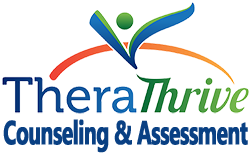
Have a specific learning disability?
Learning Disabilities and Differences
Learning disabilities include, but are not limited to:
- Dyslexia: difficulties that affect reading
- Dysgraphia: affects handwriting, fine motor skills
- Dyscalculia: difficulties to understand numbers and/or mathematics
- Dyspraxia: affects movement and coordination
- Non-verbal learning difficulties: trouble interpreting nonverbal cues
- Oral/written language disorder (as classified in the DSM IV-TR): difficulties understanding what you read or what you hear
Learning Differences
Auditory and visual processing difficulties are not technically learning disabilities, yet may fall under the category of a learning difference.
Additional struggles may include:
- Trouble starting a task (becoming overwhelmed by too much incoming information)
- An ability to sustain focused attention (this can look like ADHD or a specific learning disability might be comorbid with ADHD)
- Sequencing problems, both small and big picture (this relates with fluid reasoning as well)
- Difficulty organizing visual stimuli (such as seeing individual letters or numbers, or blends of letters or numbers)
- Trouble planning and completing tasks, projects, homework
- Difficulty with sticking to a task (persistence)
- A non-productive feedback loop that undermines your motivation or progress (this can look like negative self-talk, poor self-efficacy)
- Trouble utilizing your working memory (you might get stuck, or seem to space-out)
- Difficulty in accessing creativity for problem solving
- Difficulty with certain types of self-awareness, such as a struggle with using feedback to modify thinking and behavior
Specific Learning Disabilities
Some specific learning challenges may impact the aquisition, organizaiton, retention, understanding and use of verbal and/or nonberbal information.
Specific learning differences may involve imapirment in one or more proess related to perceiving, thinking, remembering or learning, such as:
- language processing
- phonological processing
- visual spatial processing
- perceptual motor integration
- processing speed
- memory and attention
- executive functions
Specific learning differences may also interfere with one or ore of the following:
- oral language (for example, listening, speaking, understanding)
- reading (for example, decoding, phonetic knowledge, word recognition, comprehensions)
- written language (for example, spelling and written language)
- mathetmatics (for example, computation, problemsolving)
- organization
- social skills
Executive Functioning and Learning Disabilities
Executive functioning is often impacted by learning disabilities.
Executive functioning involves:
- Working memory, which includes the thoughts we hold in the moment. An analogy is computer RAM (long term memory would be more like memory for storage).
- Cognitive flexibility, which includes fluid reasoning. Fluid reasoning is our capacity to think logically and to solve problems in new situations independent of acquired knowledge. In illustration, if A leads to C, and B leads to C, then our fluid reasoning informs us that A and B might have some commonalities because they both lead to C (coincidence aside). Cognitive flexibility also helps us to adapt to new situations and respond to our environment.
- Inhibition control, which is essentially thinking before acting. With good inhibition control, we pause, stop and think in order to best utilize reasoning abilities. Having inhibition control means that we can control automatic urges, which impact our attentio, actions/behavior, thoughts, and emotional reactions.
Some people with executive dysfunctioning and learning disabilities may also be more prone to frustration and anxiety. Increasing your understanding of your executive functioning can help with utilizing your learning differences as strengths (for example, thinking in pictures) and creating work-arounds to help you better manage life’s challenges.
Find A Therapist
Documents
